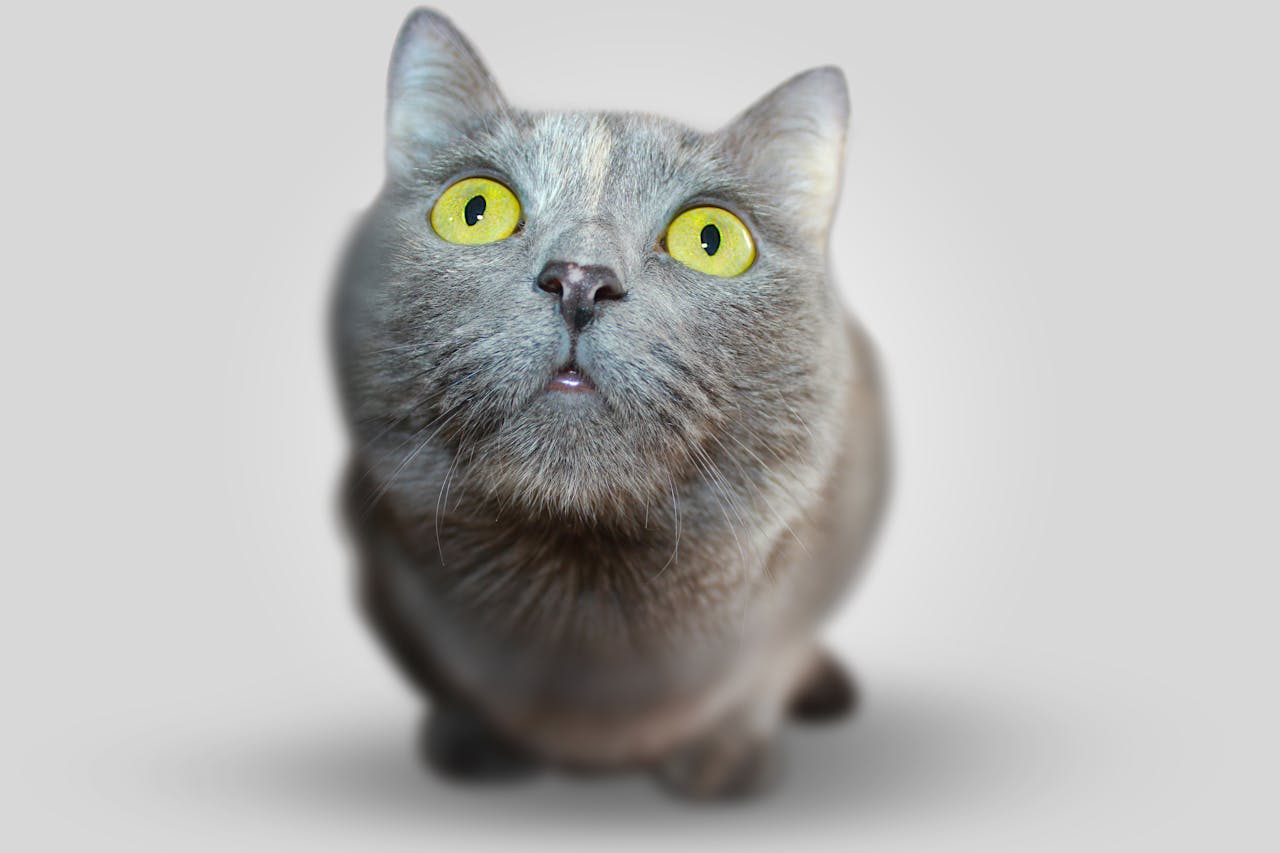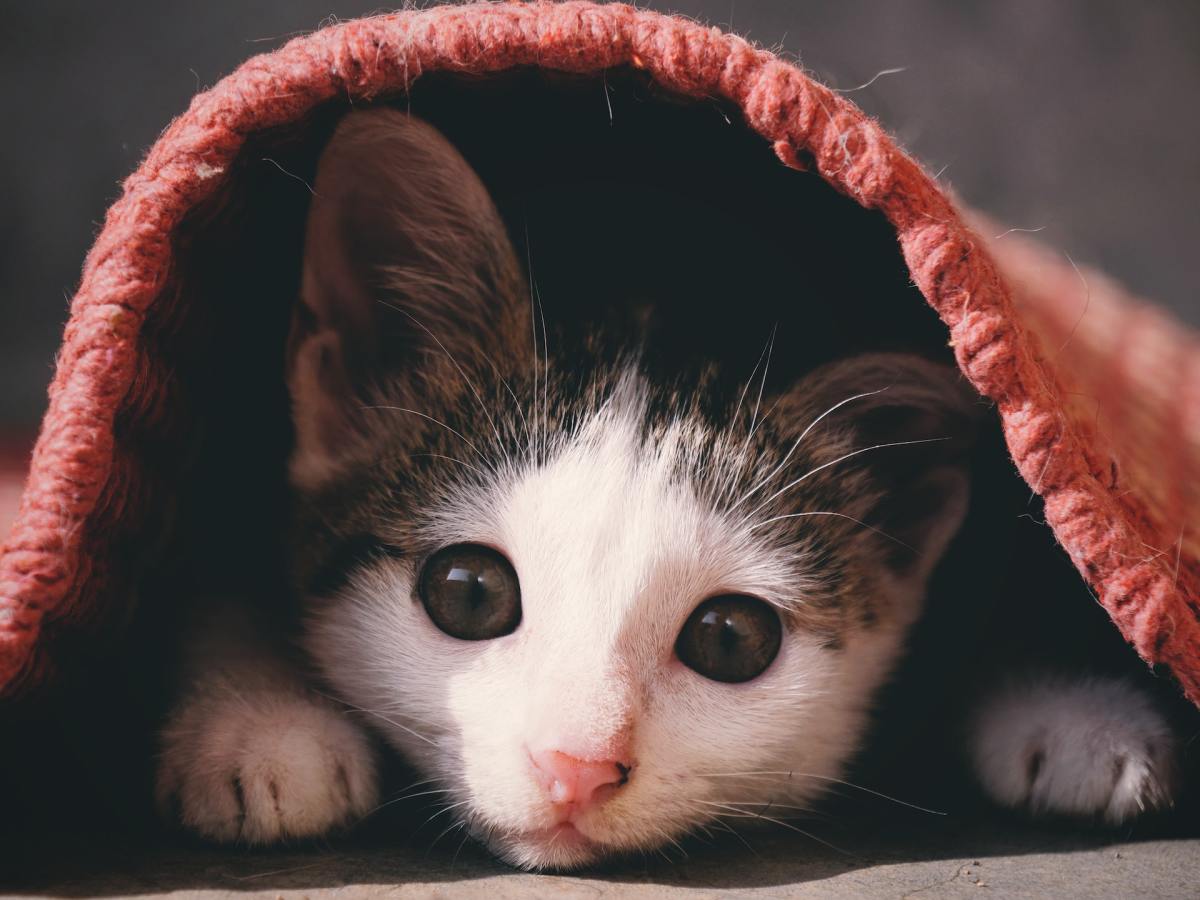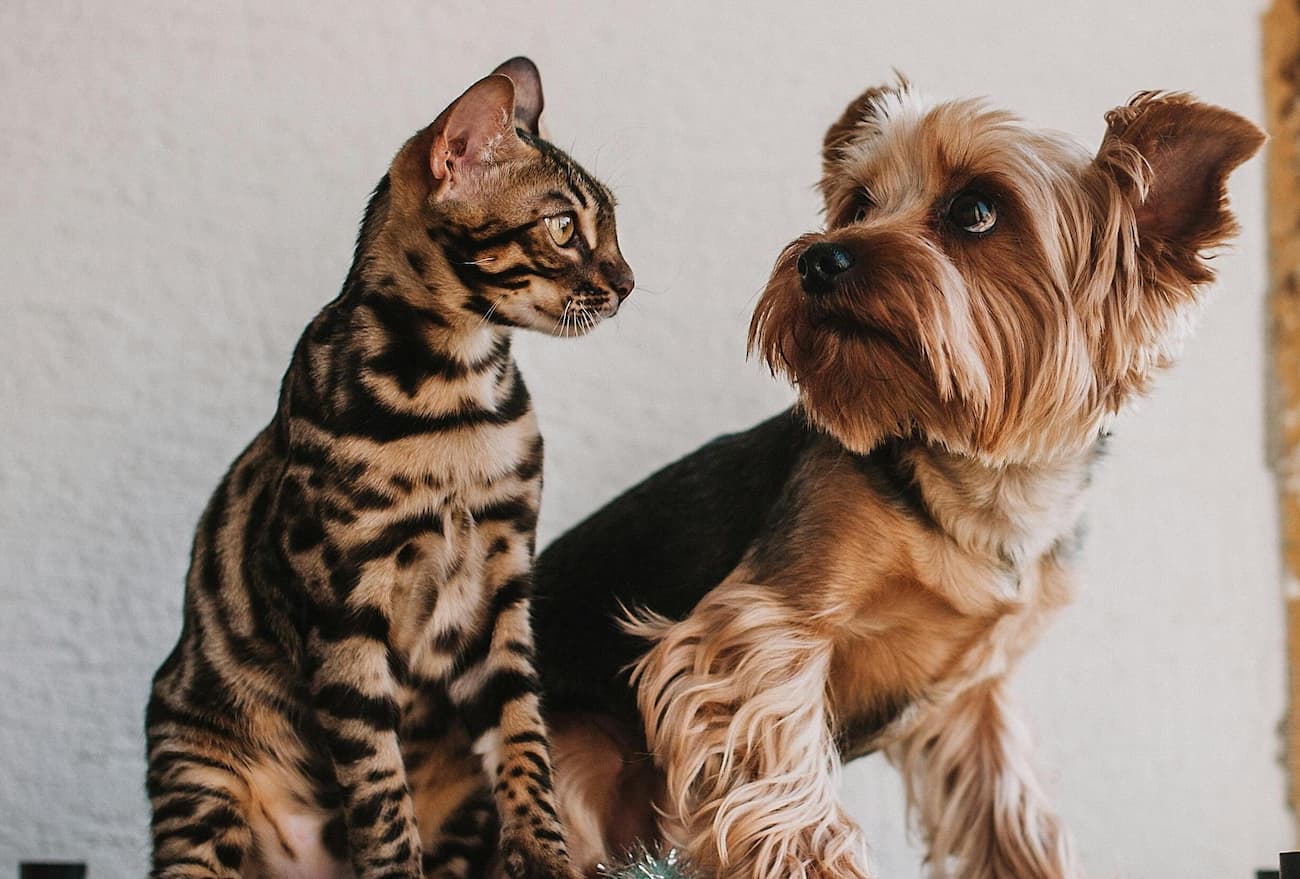Most domestic cats love to follow their owners about the house to some extent. Besides giving them something to do, cats (as natural predators) instinctively observe, stalk, and pounce on their prey. If you’re wondering, “Why does my cat stalk me?” you might feel a little confused. Does your cat see you as their prey? Are they really stalking you? Let’s take a look at the intriguing behavior of cats “stalking” their owners to see what’s actually going on.
Is My Cat Stalking Me?
Your cat isn’t stalking you in a criminal sense but more likely follows you intently out of affection. One of the literal definitions of “stalking” provided by Oxford Languages is to “harass or persecute (someone) with unwanted and obsessive attention.” That would be an unjustified description for a domestic cat who loves to follow his owner everywhere. So, what’s going on? Why does my cat seem to be stalking me? An alternative meaning (to pursue or approach stealthily, like “a cat stalking a bird”) is perhaps a more accurate description of the situation (except you’re not their prey).

Reasons Your Cat Follows You Obsessively
If you’re wondering, ‘Why does my cat stalk me?’, it has everything to do with instinct, affection, curiosity, and the need for your attention.
- It’s Because He Loves You
- He May Need Your Attention
- It’s Rooted in a Cat’s Natural Instincts
- Cats Have a Unique Attachment to Their Owner
- They’re Watching Their Social Circle
- Your Home Is Their Territory
- Cats Have a Fascination With Human Behavior
- They are Driven by Routine (or Lack Thereof)
- They May Feel Ill or Stressed
It’s Because He Loves You
Most cat-stalking is a harmless sign of affection—or at least the feline version of it. Veterinarian Kelly Gold, DVM, suggests that cats following you around all the time, not letting you out of their sight, and weaving between your legs are classic signs that they love you.
He May Need Your Attention
Sometimes, a cat follows their owner because they need something—and they don’t know how else to let you know. Your cat may stalk you to say she needs food, water, or “How about playing a game?”. Because felines are adept at observing our habits, they have a knack for knowing when to ask for what they want.
It’s Rooted in a Cat’s Natural Instincts
According to one study, domestic cats retain many of the instincts of their wild ancestors. This includes carefully watching the things going on around them and honing in on even the slightest movement—a behavior rooted in their territorial nature.
But here’s where things get interesting: cats don’t always hunt for food. Sometimes, their ‘stalking’ tendencies are about curiosity or reinforcing their sense of security in their environment.
They Have a Unique Attachment to Their Owner
Another study indicates that cats, much like dogs and human infants, form secure and insecure attachments to their human caregivers. These findings suggest that cats are ‘social generalists.’ In other words, they are capable of adapting their attachment behaviors to fit whatever’s in their immediate environment.
They’re Watching Their Social Circle
Many cats follow and study us intently because they see us as part of their social group. Cats socialized to people as kittens tend to develop a much stronger sense of ‘friendliness’ towards their humans. This makes them keenly interested in their owners’ everyday movements and activities. So when a cat ‘stalks’ their owner, it highlights their instinctual behavior to monitor their territory and the key figures within it. This might be true even if their motives are rooted in predatory instincts.
Your Home Is Their Territory
This flexibility in their social behavior means that cats can bond with humans just as strongly as dogs can. That may explain why a cat sees its owner as a central figure in their space. (Yes, you read that right: your cat sees your home as their space, not yours!) So, keeping a close eye on us is their way to ensure we’re staying “in line” and observing their “house rules.” For example:
- Are we cleaning their litter box often enough?
- Are we providing enough food or treats on time?
- Are we paying enough attention to them?
Cats Have a Fascination With Human Behavior
Cats closely monitor their humans because they find our behavior both unpredictable and fascinating. What an intriguing concept to think your cat may be “stalking” you because they are fascinated about your next move!
- Which room will you walk into next?
- Will you grab a snack on the go?
- Will you leave impromptu without saying goodbye?

They are Driven by Routine (or Lack Thereof)
Since cats are sticklers for a solidly structured routine, it makes sense that they follow us intensely because emotions arise from our unpredictable behavior. Your cat might stalk you in the kitchen because they are afraid you’ll forget to feed them (after all, as an unpredictable human, your cat may have witnessed you eating at irregular times).
Perhaps your cat follows you every time you go to the bathroom? They might worry you’re about to shut the door on them and never come back out. Perhaps your cat senses when you are about to leave for work and feels that stalking you will communicate the message: “Don’t go; I love you!”
They May Feel Ill or Stressed
Cats communicate in mysterious ways; sometimes they send us strange behavioral messages that suggest something might be wrong. For example, pets with separation anxiety or certain medical problems tend to feel more clingy toward their owners. Any unusual behavior that may leave the owner wondering why their cat would stalk them obsessively shouldn’t be ignored. For example, signals like these should raise warning flags that the cat should see a vet:
- Sudden, intense following accompanied by vocalizations
- Persistent lurking near specific areas like the bedroom or bathroom
- If your cat follows you obsessively and then attacks (e.g., bites) you—a sign of being overwhelmed or overstimulated.
Should I Be Worried About My Cat Stalking Me?
Most stalking-like behavior in cats is perfectly normal, as studies show. However, should your cat’s behavior concern you in any way, please take them to the vet for a quick check-up. Vets can diagnose and treat most cases of stress and health problems promptly. So, if you’re worried, calling your local vet should be your first step in helping them to feel better.
What Can I Do at Home to Calm My Cat?
If separation anxiety or stress might be the root cause of why your cat is stalking you, you might consider a couple of home remedies to help them settle.
How Pheromone Diffusers Help
In my experience, a Feliway pheromone diffuser is handy to calm a cat’s nerves. Simply plug one into the room (or rooms) where your cat seems unsettled, and allow the pheromones to do their work. The diffuser releases synthetic pheromones (similar to those a mother cat naturally releases to her kittens). This clever device can soothe your cat so they stop stalking you and get on with more important cat tasks, like playing and napping.
Introduce New Toys and Focal Points
Another approach you might want to try is introducing new playthings to your kitty’s environment. Doing this will give them some other focus to distract them from intently following you around the house. A window sill hammock is also a terrific idea for your cat to rest upon; it gives your pet an interesting viewpoint so they can watch through the window instead of obsessively following you.
Final Thoughts on Cat Stalking Behavior
If you’re wondering “Why does my cat stalk me” (or at least it seems that way), it’s usually harmless behavior. Consider their root instincts, how they love to naturally observe and follow, but most of all, how much they love you. Your cat feels obsessed with following you from room to room because they would miss you if you left. Remember there are resources available to help if your cat’s behavior is worrisome; a call to the vet is always a responsible approach if you aren’t sure what to do.
Sources
- Bradshaw, J. (2018). Normal feline behavior: … and why problem behaviors develop. Journal of Feline Medicine and Surgery. https://doi.org/10.1177/1098612X18771203
- (Vitale, K. R., Behnke, A. C., & Udell, M. A. (2019). Attachment bonds between domestic cats and humans. Current Biology, 29(18), R864-R865. https://doi.org/10.1016/j.cub.2019.08.036
- Turner D. C. (2021). The Mechanics of Social Interactions Between Cats and Their Owners. Frontiers in veterinary science, 8, 650143. https://doi.org/10.3389/fvets.2021.650143




